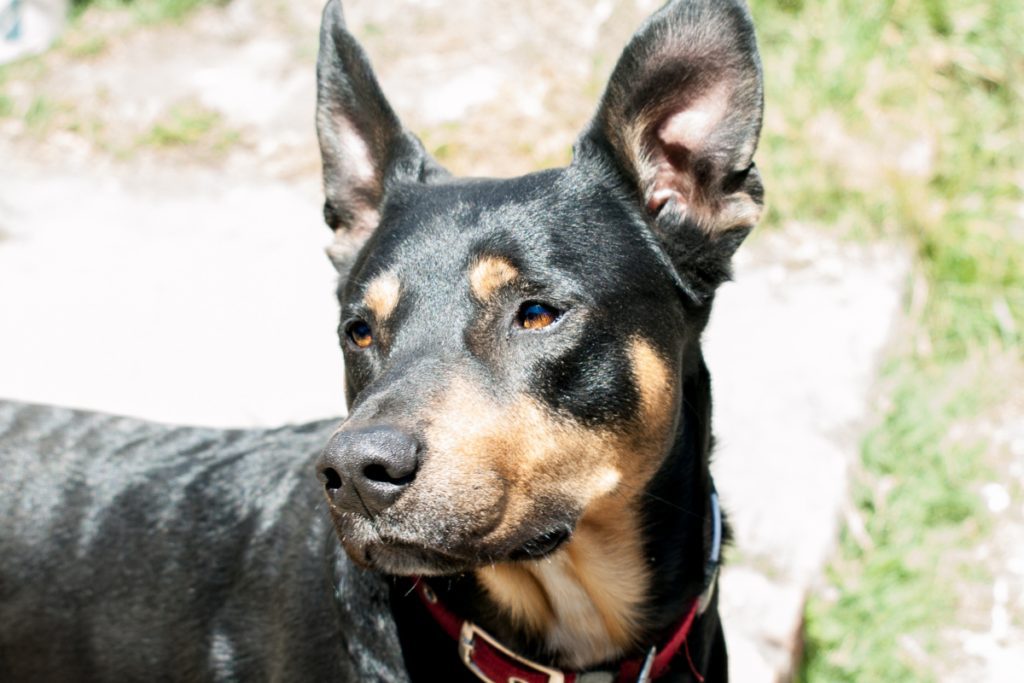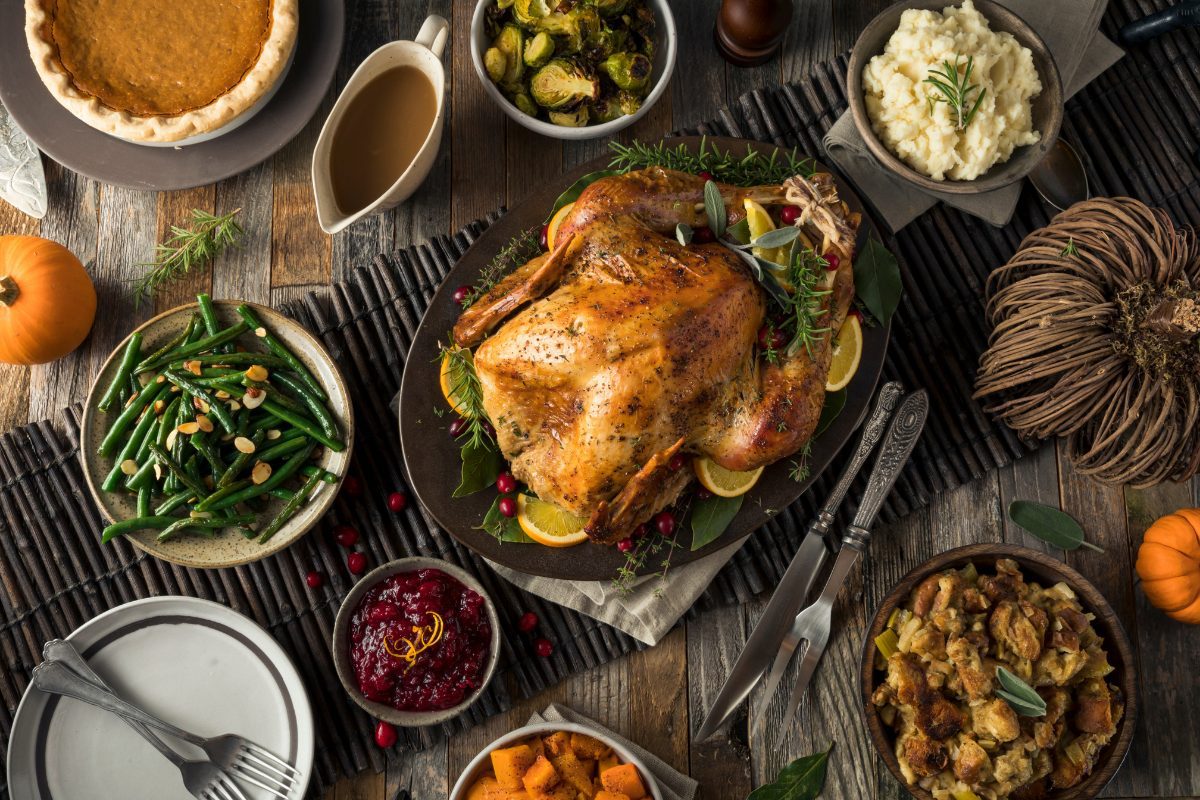Thanksgiving is not an exclusively American holiday, but it is celebrated in the United States (and the Australian territory of Norfolk Island) this week. For me, it is a regular workday, but I do quietly observe it at home with my Aussie husband. We make a small piece of turkey, not a whole one, and some traditional sides. Thanksgiving is a holiday that makes me a little homesick, but observing it also makes me feel connected to my Americaness, with all the controversies it brings
Thanksgiving is the biggest travel holiday in the United States. Yes, bigger than Christmas, and there isn’t any other national holiday like Thanksgiving. People from all over the country come together. It may be the only time in the year you gather with certain family members, for good or ill. Families share what they view as a traditional meal and give thanks. Decorations are minimal. There are no gifts. It’s just family, food, and thankfulnes.
Underneath all those things, Thanksgiving is about coming to terms with some truths about the United States.
A National Day of Mourning
Thanksgiving is a controversial holiday. Much like Columbus Day, some see it as a day that commemorates the genocide and conquest of Native Americans.
Dennis W. Zotigh (Kiowa/Ohkay Owingeh Pueblo/Isante Dakota Indian) belongs to the Kiowa Gourd Clan and San Juan Pueblo Winter Clan and is a descendant of Sitting Bear and No Retreat, both principal war chiefs of the Kiowas. Mr Zotigh is a writer and cultural specialist at the Smithsonian National Museum of the American Indian in Washington, D.C. In an essay titled Do American Indians Celebrate Thanksgiving?, Mr Zotigh describes the hurt Thanksgiving causes.
“The Thanksgiving myth has done so much damage and harm to the cultural self-esteem of generations of Indian people, including myself, by perpetuating negative and harmful images to both young Indian and non-Indian minds. There are so many things wrong with the happy celebration that takes place in elementary schools and its association to American Indian culture; compromised integrity, stereotyping, and cultural misappropriation are three examples.”
But as the title of the essay suggests, the perception of Thanksgiving among Native Americans is not universally negative. For another article for the Smithsonian Magazine, Mr Zotigh invited seven Native American chefs to share recipes inspired by Native American foods and techniques.
Tim Giago is an American Oglala Lakota journalist. In A Day to Give Thanks Is Part of Native American Tradition, Mr Giago says he believes that most Americans understand that the story of the first Thanksgiving is, for the most part, a myth.
“But the day known as Thanksgiving has been accepted as a legal holiday by most Native Americans because the idea of a day to give thanks is such a strong part of their traditions and culture. There are “wopila” (giving thanks) celebrations all of the time among the Indian people of the Great Plains. A son or daughter returning home from Iraq or Afghanistan is an occasion for a wopila celebration. A wopila to celebrate a high school or college graduation is typical. When someone recovers from an accident or a serious illness, a wopila celebration or ceremony is held.
“So the idea of a day of Thanksgiving has been a part of the Native American landscape for centuries. The fact that it is also a national holiday for all Americans blends in perfectly with Native American traditions.”
A better way to celebrate Thanksgiving
Sean Sherman is the founder and CEO of The Sioux Chef and the author of The Sioux Chef’s Indigenous Kitchen. He has not abandoned the holiday, but he has found a better way to celebrate Thanksgiving.
“The thing is, we do not need the poisonous ‘pilgrims and Indians’ narrative. We do not need that illusion of past unity to actually unite people today. Instead, we can focus simply on values that apply to everybody: togetherness, generosity and gratitude. And we can make the day about what everybody wants to talk and think about anyway: the food.
“People may not realize it, but what every person in this country shares, and the very history of this nation, has been in front of us the whole time. Most of our Thanksgiving recipes are made with indigenous foods: turkey, corn, beans, pumpkins, maple, wild rice and the like. We should embrace this.”
I try to approach Thanksgiving Day with nuance. I observe it, but I don’t celebrate it. I don’t need decorations or costumes of Pilgrims or Indians, football, or parades. I acknowledge the brutality that Native American people endured and the barriers they continue to face. This is an excellent time to learn more, uplift voices, and support the work of Native American artists and activists. It’s also an ideal time to consider the harmful stereotypes against Native Americans that might appear in our spiritual practices and learn more about cultural appropriation.
The humans who feed us
Let’s also think about the people and the labour behind all the food on the Thanksgiving dinner table. According to the USDA Economic Research Service, immigrant farmworkers make up an estimated 73% of agriculture workers, many Hispanic and LatinX people.
Three things I'm grateful for this Thanksgiving
Gratitude is a part of my regular spiritual practice. I have a long list of things that I’m grateful for, including my home, education, technology, healthcare, and a sense of safety. I’m thankful for another sunrise, nailing a great recipe, and getting lost in a good book. But it’s been an especially rough year, and this is what helped me get through it.
I am grateful for my family.
I am grateful for my clever, kind, generous, funny, loving husband. He is there for me through my ups and downs and supports all my wacky ideas. Our life together keeps getting better.
I am grateful for my family in Miami. I have missed them so much this year. It has been a very challenging year, and I am so thankful for my father’s endurance, my mother’s commitment, and my sister’s strength.
I look forward to seeing them again in 2022.
I am grateful for my dog Sam.
My husband already owned Sam when I moved in, and he was the first dog I ever had. Sam was a beautiful, energetic, wilful, loving, ball-obsessed mixed Kelpie. Sadly, he died of natural causes early this year at the age of 12. I’m grateful for the years of joy that Sam brought into our lives and that my husband and I could be with him when he died at home. I am now firmly convinced that dogs are too good for humans.

I am grateful for my Pagan community.
I am grateful for the brilliant, talented Witches in my coven, for their friendship, support, and the opportunities to learn, teach, and grow.
I am grateful for my teacher Priestess Yeshe Matthews. Her devotion, classes, ceremonies, and divinations have expanded and deepened my spiritual practice, helped heal and nourish my spirit, and inspired me.
I am grateful to Octopussy, my girl gang of wondrous Witches, for their support, insights, and humour.
I am grateful for my godfather in Lucumi, OmiLekun, for his love, support, and advice. It seems like there is never a bad time to reach out to him.
Have a good Thanksgiving, dear readers.

